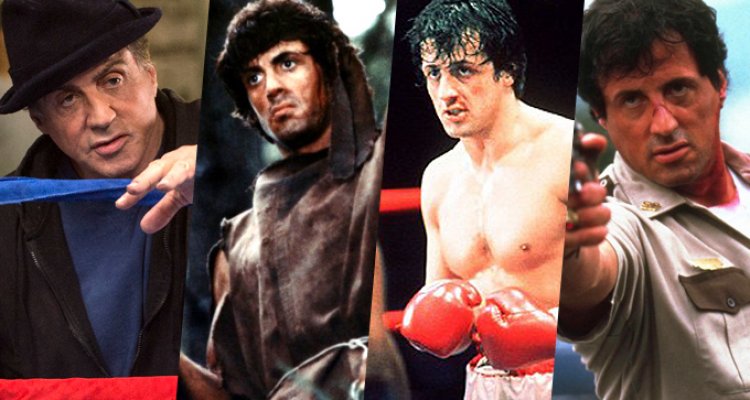“Of course, if you go in intellectually, you hate it. But if you let yourself go with it, something happens about 40 minutes into the movie. You say to yourself, ‘Hey, this isn’t going to be the colossal downer of all time.'” That’s Sylvester Stallone talking about “Rocky,” in a 1976 interview with Roger Ebert. Looking at the mega action-star’s whole career in hindsight, and up until today, you could just as easily apply that quote to all of his films. He adopted this philosophical approach ever since he became famous in the mid-’70s, and it became the Sly Stallone method of contributing to the world of cinema. That it mostly entails blowing shit up, punching people in the face, and getting the audience emotionally invested in the underdog is very much the reason why he became a legendary action star, beloved by millions.
Going through some rough patches and a handful of bad movies in the ’90s and ’00s was never going to break a man who knows what it’s like to be homeless, sleep in the Port Authority Bus Terminal, and take acting gigs in soft-core porn as a means to eat. The rags-to-riches Sylvester Stallone story has now become a Hollywood true-life fable. He’ll never be placed alongside acting thesps in terms of disappearing into roles (which was never his goal anyway), but what’s often underrated when it comes to Stallone isn’t his acting as much as his passion for entertaining. Considering himself a writer first and actor second, from the “Rocky” to “The Expendables” franchises, Stallone has made it a point to have a hand in his movies’ screenplays, often writing them himself. He doesn’t disappear into roles; the roles disappear into him. And, though we can sometimes complain about it, we wouldn’t really want it any other way.
This Friday sees the release of “Creed” (our review), the seventh film to feature Stallone’s most popular character of all, Rocky Balboa. As our way of saluting this hard-working and passionate actor, I’ve detailed his ten essential performances. Not all are good cinema by any stretch of the imagination, and one in particular is a bit of a downer that 1976 Stallone might’ve easily dismissed, but all expose the Italian-American actor’s love of the craft and good old-fashioned movie entertainment.

“Death Race 2000” (1975)
The pre-“Rocky” phase of Stallone’s career has all but rubbed off completely — mostly for good reason, since it includes the actor’s very first film appearance in the soft-core porno “The Party at Kitty and Stud’s” (1970) and tiny bit parts in Woody Allen’s “Bananas” (1971) and Melvin Frank’s Neil Simon adaptation”The Prisoner of Second Avenue” (1975) with Jack Lemmon. But, there are two memorable performances that came in this early phase before he portrayed the iconic boxer: in the Brooklyn comedy “The Lords of Flatbush” (1974), where his sensitive side first saw the light of day; and in Paul Bartel’s crazed B-movie “Death Race 2000.” It’s the latter I’m highlighting over the rest because it sees Stallone filling the atypical shoes of a villain, playing “Machine Gun” Joe Viterbo, one of his most impetuous characters, a creature who’d fit right in George Miller’s wasteland. The eccentric sci-fi story is set in a dystopian America in the year 2000, where a transcontinental race provides world entertainment in the form of drivers racing to the finish line and murdering people for points. The whole thing is very satirical, mocking American and French politics, involving Thomas Paine‘s descendants in plots to overthrow the president, and hiding grenades in mechanical hands so they can be called hand grenades. Stallone’s Joe is a jealous and murderous slob of a human, dying for attention and the chance to beat David Carradine‘s Frankenstein. He’s a menacing maniac on the road who’s insatiably fun to watch, but it’s in the late dinner scene when he steals it from everyone else with some clam sauce and a succinct delivery of two words: “Bull. Shit!”

